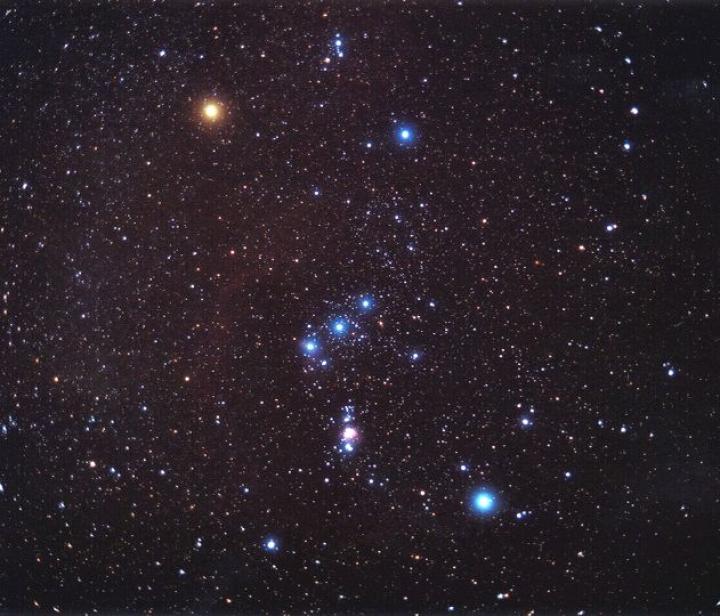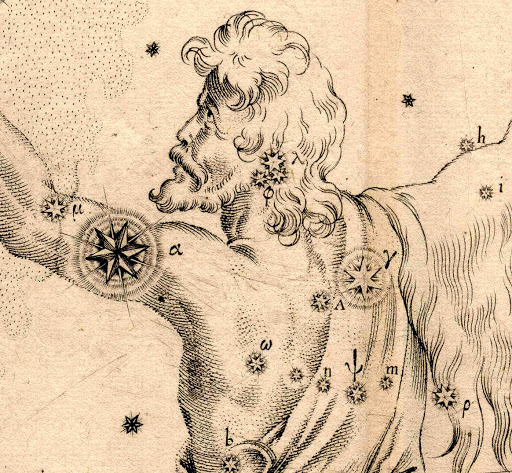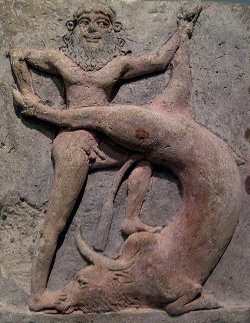THE SOUTHWORTH PLANETARIUM
207-780-4249 www.usm.maine.edu/planet
70 Falmouth Street Portland, Maine 04103
43.6667° N 70.2667° W
Altitude: 10 feet below sea level
Founded January 1970
Julian Date: 2459347.18
2020-2021: CXXVIII
"Two fish are in a tank. One says to the other, 'How do you drive this thing?'"
THE DAILY ASTRONOMER
Thursday, May 13, 2021
Orion's Descent
into the dusk is an annual affair occurring around mid-May. The fifth's month arrival just precedes Orion's early evening obscuration. Being admittedly Orion-obsessed, we feel almost compelled to commemorate Orion's annual disappearance. After all, the giant hunter's dusky descent herald's summer's imminent arrival, just as its early-to-mid August ascent in the pre-dawn eastern sky foreshadows autumn's return.

Just as being near an ocean shore makes one feel connected to the terraqueous globe, looking at Orion binds one to all of recorded human history and to nearly every latitude. As it is centered on the celestial equator -the projection of Earth's equator onto the sky- Orion is visible from every permanent human habitation. Moreover, the individual stellar motions during the span of all recorded human history have hardly altered the constellation's configuration. Cultures throughout the last ten thousand years have hoisted their noblest mythological paladins onto the firmament around this all-too-human stellar arrangement.
An image of Orion from a 1661 edition of the Uranometria
The Orion that adorns our crisp winter evening sky is the same Orion one encounters not only in Ovid or Hesiod, but in the indigenous lore of the Americas where he was seen as the warrior Long Sash. Orion loomed menacingly above the Valley of the Kings as Osiris, God of the Dead and strove to tear the sky asunder as the Sumerian hero Gilgamesh.
Terracotta relief of Gilgamesh dominating a
once-fearsome bull
Even prior to the development of the earliest writing systems, Orion bestrode the star-adorned firmament like a colossus, serving, perhaps, as a patron deity to the nomadic forbearers who scurried through the ancient forests and verdant meadows. Is this same Orion destined to also be admired by moon colonists and the first humans to explore Alpha Centauri?
We do know that the constellation steeped in ancient lore and still beheld by those whose skies remain unobscured by pervasive light has vanished yet again into the twilight and is destined to begin the next cycle this coming August. We shall miss you, Orion and we shall never forget that the day we see you as just a collection of stars is the day we cease to be fully human.
*Precessional motions shift the constellation positions so that Orion won't always set with the Sun this time of year.
To subscribe or unsubscribe from the Daily Astronomer:



